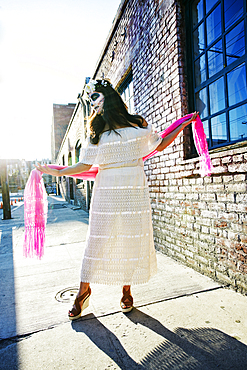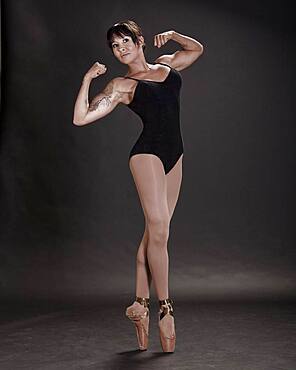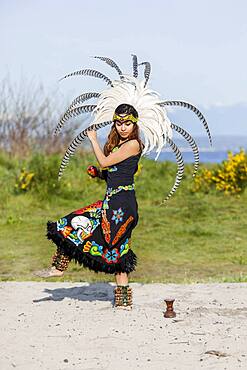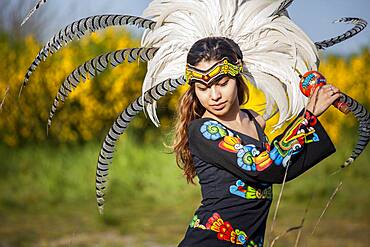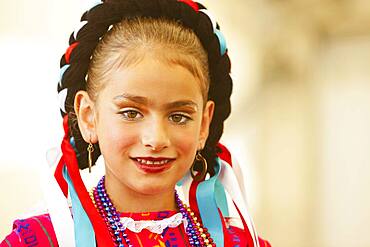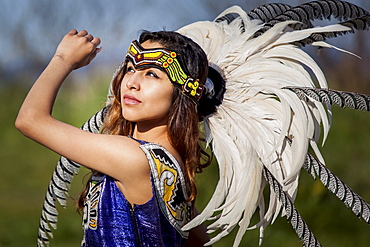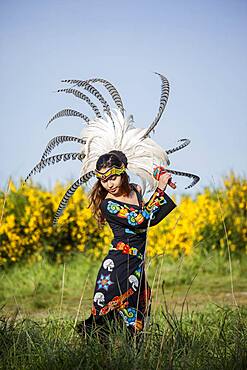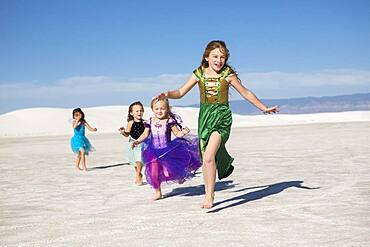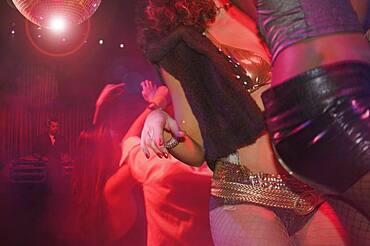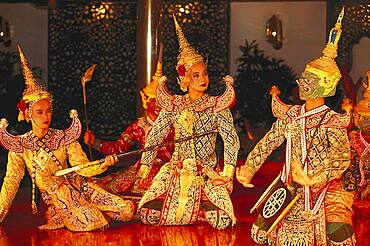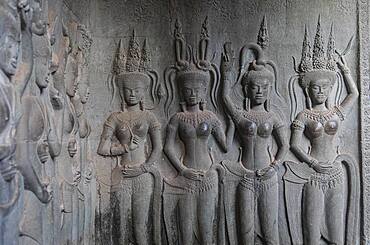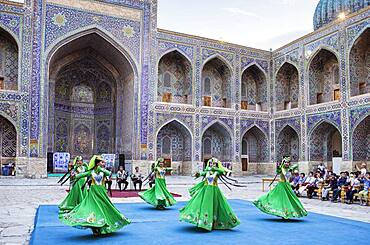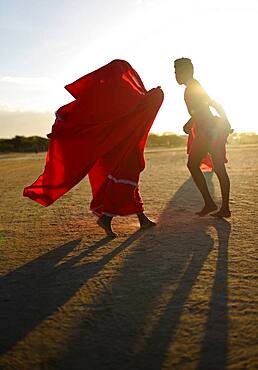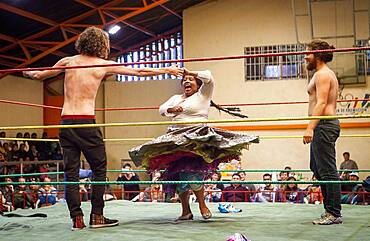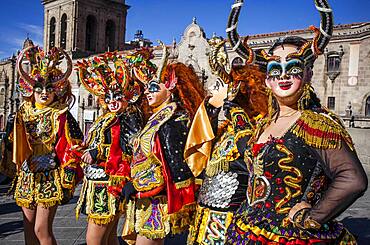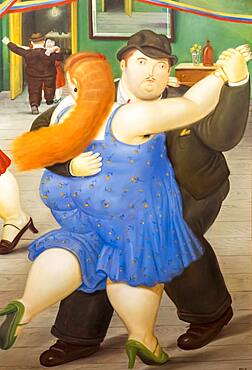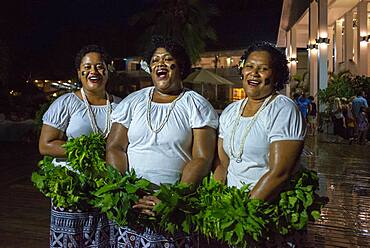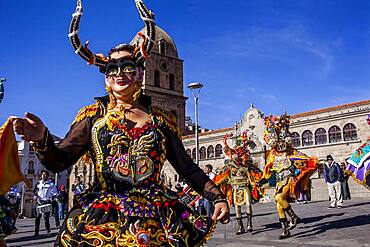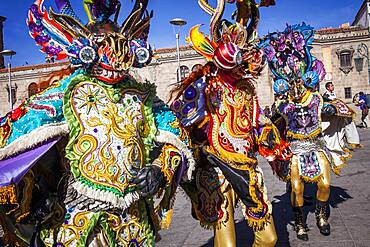Recent searches
Loading...
1178-36112 - Girls sitting in a row on floor of ballet studio
1178-35759 - Mixed race ballet dancer sitting on curb rubbing leg
1178-35763 - Mixed race ballet dancer wearing dress on sidewalk
1178-36103 - Girls standing and talking in ballet studio
1178-35758 - Portrait of confident mixed race ballet dancer in city
1178-36926 - Black woman standing on one leg holding foot
1178-36290 - Close up of Caucasian couple laughing
1178-35768 - Mixed race woman dancing ballet in city
1178-36551 - Smiling mixed race woman dancing near wooden wall
1178-35771 - Sunbeams on mixed race woman dancing in city
1178-35765 - Smiling mixed race ballet dancer wearing dress on sidewalk
1178-36113 - Teacher and students practicing in ballet studio
1178-35912 - Mixed Race woman dancing on sidewalk wearing skull face paint
1178-35762 - Mixed race woman dancing ballet on sidewalk
1178-36106 - Portrait of smiling girls in ballet studio
1178-36111 - Girls standing in a row in ballet studio
1178-36667 - Caucasian woman wearing traditional clothing dancing in field
1178-36100 - Girls sitting on floor and talking in ballet studio
1178-35761 - Mixed race ballet dancer resting on sidewalk
1178-34514 - Hispanic ballet dancer flexing muscles
1178-33112 - Native American woman in traditional headdress performing ceremony
1178-34638 - Caucasian dancers stretching in studio
1178-33108 - Native American woman in traditional headdress performing ceremony
1178-34809 - Performer wearing bikini and feather boa
1178-33335 - Mixed race girl wearing traditional makeup and dress
1178-33107 - Native American woman in traditional headdress performing ceremony
1178-33106 - Native American woman in traditional headdress performing ceremony
1178-33109 - Native American woman in traditional headdress performing ceremony
1178-33161 - Mixed race boy playing on sofa in living room
1178-34635 - Caucasian dancers practicing in studio
1178-32482 - Multi-ethnic people dancing at nightclub
1178-32478 - Multi-ethnic people dancing at nightclub
1178-32738 - Young Hispanic couple smiling at carnival
1178-32477 - Multi-ethnic people dancing at nightclub
1178-32479 - Multi-ethnic couple dancing at nightclub
1111-179 - Portrait, Noongar Aboriginal dancers perform songs showcasing their culture in Yagan Square, Perth City, Western Australia, Australia, Pacific
1184-5875 - Traditional dressed young girls practising local dances, Laarim tribe, Boya Hills, Eastern Equatoria, South Sudan, Africa
1184-5868 - Traditional dressed young girls practising local dances, Laarim tribe, Boya Hills, Eastern Equatoria, South Sudan, Africa
1184-5853 - Traditional dressed women of the Jiye tribe dancing and singing, Eastern Equatoria State, South Sudan, Africa
1184-5847 - Traditional dressed women of the Jiye tribe dancing and singing, Eastern Equatoria State, South Sudan, Africa
1184-5851 - Traditional dressed women of the Jiye tribe dancing and singing, Eastern Equatoria State, South Sudan, Africa
1113-105411 - Traditional Bavarian folk dance, Bavaria, Germany
1113-105362 - Dancers in traditional costumes, Oriental Hotel, Bangkok, Thailand, Asia
1350-1865 - Yonna dance, also called Chichamaya, carries a considerable symbolic charge for the Wayuu indigenous people of Colombia, representing three basic principles for this tribal group: Social equality, collective solidarity and the improvement of relations between the human being and the Cosmos.
1350-941 - Aspara sculptures in bas-relief on the wall, in Angkor Wat, Siem Reap, Cambodia
1350-1859 - Yonna dance, also called Chichamaya, carries a considerable symbolic charge for the Wayuu indigenous people of Colombia, representing three basic principles for this tribal group: Social equality, collective solidarity and the improvement of relations between the human being and the Cosmos.
1350-1871 - Yonna dance, also called Chichamaya, carries a considerable symbolic charge for the Wayuu indigenous people of Colombia, representing three basic principles for this tribal group: Social equality, collective solidarity and the improvement of relations between the human being and the Cosmos.
1350-1565 - Traditional dance, folklore, in the courtyard of Sher Dor Medressa, Registan, Samarkand, Uzbekistan
1350-1860 - Yonna dance, also called Chichamaya, carries a considerable symbolic charge for the Wayuu indigenous people of Colombia, representing three basic principles for this tribal group: Social equality, collective solidarity and the improvement of relations between the human being and the Cosmos.
1350-832 - Lucha Libre. Two spontaneous up to the ring to dace with the cholita Angela la Folclorista to celebrate the victory, Sports center La Ceja, El Alto, La Paz, Bolivia
1350-1861 - Yonna dance, also called Chichamaya, carries a considerable symbolic charge for the Wayuu indigenous people of Colombia, representing three basic principles for this tribal group: Social equality, collective solidarity and the improvement of relations between the human being and the Cosmos.
1350-882 - Fiesta del Gran Poder, Plaza San Francisco, in background San Francisco church, La Paz, Bolivia
1350-939 - Aspara sculptures in bas-relief on the wall, in Angkor Wat, Siem Reap, Cambodia
1350-2066 - Likuliku Lagoon Resort, Five Star Resort, Malolo Island, Mamanucas, Fiji. Lighting fire late in the afternoon.
1350-2039 - Tradtional Fijian Warriors portrait in Malolo Island Resort and Likuliku Resort, Mamanucas island group Fiji
1350-1862 - Yonna dance, also called Chichamaya, carries a considerable symbolic charge for the Wayuu indigenous people of Colombia, representing three basic principles for this tribal group: Social equality, collective solidarity and the improvement of relations between the human being and the Cosmos.
1350-863 - `Pareja bailando´ or `Couple dancing´ by Fernando Botero, Botero Museum, Bogota, Colombia
1350-1866 - Yonna dance, also called Chichamaya, carries a considerable symbolic charge for the Wayuu indigenous people of Colombia, representing three basic principles for this tribal group: Social equality, collective solidarity and the improvement of relations between the human being and the Cosmos.
1350-1870 - Yonna dance, also called Chichamaya, carries a considerable symbolic charge for the Wayuu indigenous people of Colombia, representing three basic principles for this tribal group: Social equality, collective solidarity and the improvement of relations between the human being and the Cosmos.
1350-943 - Aspara sculpture in bas-relief on the wall, in Angkor Wat, Siem Reap, Cambodia
1350-1868 - Yonna dance, also called Chichamaya, carries a considerable symbolic charge for the Wayuu indigenous people of Colombia, representing three basic principles for this tribal group: Social equality, collective solidarity and the improvement of relations between the human being and the Cosmos.
1350-2056 - Tradtional Fijian dances and music in Malolo Island Resort and Likuliku Resort, Mamanucas island group Fiji
1350-1858 - Yonna dance, also called Chichamaya, carries a considerable symbolic charge for the Wayuu indigenous people of Colombia, representing three basic principles for this tribal group: Social equality, collective solidarity and the improvement of relations between the human being and the Cosmos.
1350-2128 - Dancing show of polynesian dances on Paul Gauguin cruise ship. France, French Polynesia, Polynesian, South Pacific.
1350-2065 - Tradtional Fijian Warriors portrait in Malolo Island Resort and Likuliku Resort, Mamanucas island group Fiji
1350-1360 - Black and White C-13, dancers of Hip Hop, Street art, Comuna 13, Medellín, Colombia
1350-2037 - Tradtional Fijian Warrior playing the drum in Malolo Island Resort and Likuliku Resort, Mamanucas island group Fiji
1350-822 - At left Dina , in the middle Benita la Intocable, at right Angela la Folclorista, cholitas females wrestlers, El Alto, La Paz, Bolivia
1350-2126 - Portrait of a old women in Huahine, Society Islands, French Polynesia, South Pacific.
1350-885 - Fiesta del Gran Poder, Plaza San Francisco, in background San Francisco church, La Paz, Bolivia
1350-1789 - Widows praying in a Bhajan ashram, Vrindavan, Mathura district, India
1350-1869 - Yonna dance, also called Chichamaya, carries a considerable symbolic charge for the Wayuu indigenous people of Colombia, representing three basic principles for this tribal group: Social equality, collective solidarity and the improvement of relations between the human being and the Cosmos.
1350-2043 - Tradtional Fijian songs and music in Malolo Island Resort and Likuliku Resort, Mamanucas island group Fiji
1350-883 - Fiesta del Gran Poder, Plaza San Francisco, La Paz, Bolivia
















